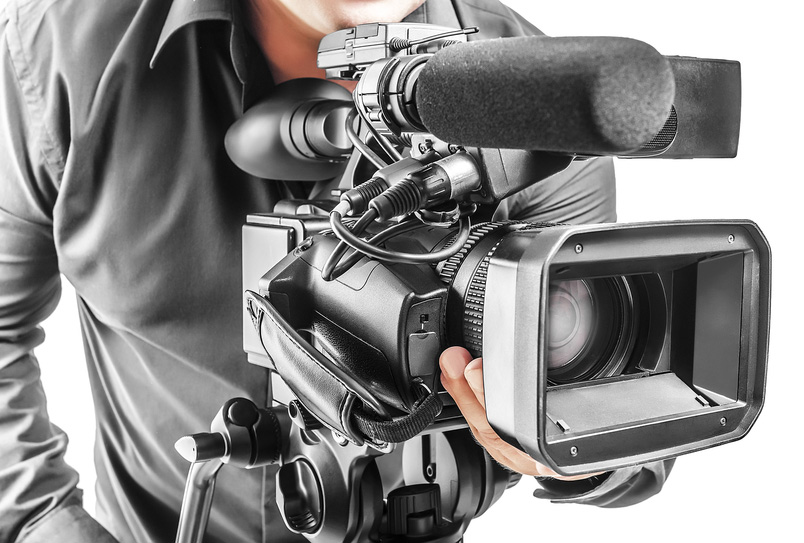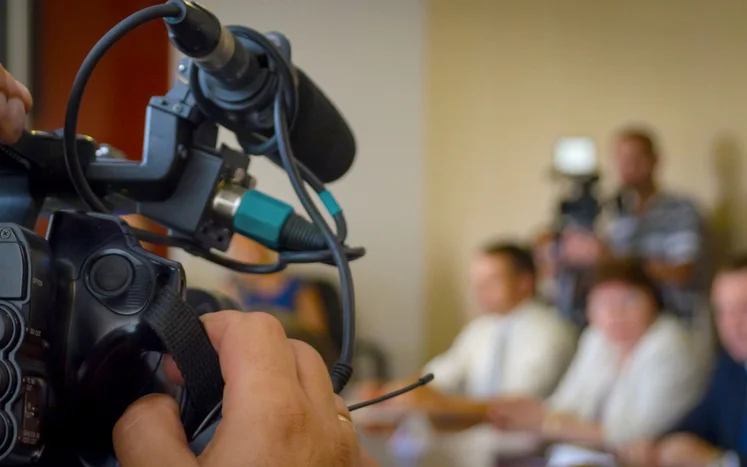Skilled Legal Videography for Trials.
Skilled Legal Videography for Trials.
Blog Article
The Duty of Lawful Videography in Depositions and Tests
Legal videography has emerged as an important tool in both depositions and tests, giving a complex strategy to recording witness statements. As legal professionals significantly identify its worth, it triggers a deeper exam of just how these aesthetic records can affect juror assumptions and trial outcomes.
Importance of Legal Videography
Lawful videography plays an essential function in the documentation and discussion of depositions and tests. This specialized area integrates technical abilities with lawful knowledge to develop a trusted record of proceedings that can dramatically influence case end results. The appearance of legal videography enhances the understanding of witness testament, allowing jurors and courts to observe not only the talked words however also the temperament, emotions, and body movement of the witnesses.

The relevance of lawful videography prolongs beyond the court room; it likewise plays an important role in maintaining proof for future recommendation, whether for appeals or more legal action. Its assimilation into the lawful process is essential for making certain a fair and exact representation of the realities, eventually adding to the quest of justice.

Process of Legal Videography
While catching the subtleties of depositions and trials, the process of legal videography entails numerous crucial actions that make certain top quality, precise recordings. An expert legal videographer prepares by assessing the instance products and understanding the specific requirements of the deposition or trial. This preparation includes familiarizing themselves with the participants and the context, which helps in catching significant information.
On the day of the recording, the videographer establishes the essential equipment, which generally includes high-definition cameras, microphones, and proper lighting. Guaranteeing optimal angles and sound quality is crucial, as it directly influences the performance of the recording. The videographer connects with lawyers and individuals to establish procedures, guaranteeing that everyone understands the recording procedure.
Throughout the deposition or test, the videographer carefully tape-records the proceedings, paying very close attention to both spoken and non-verbal signs. legal videography. This consists of capturing the disposition and reactions of witnesses and lawyers. After the session wraps up, the videographer may edit the video for clearness and compliance with lawful criteria, creating an end product that precisely reflects the proceedings for future referral and use in legal contexts
Advantages in Depositions
The consolidation of videography in depositions offers countless benefits that enhance the total procedure of gathering proof. One main advantage is the capability to capture witness testaments with aesthetic and auditory integrity, offering an extra precise depiction of the witness's attitude, tone, and body language. This multidimensional strategy enables lawyers and juries to assess integrity much more effectively than standard written transcripts alone.
Furthermore, videographed depositions function as an effective tool for protecting testament. Must a witness come to be not available for trial, their videotaped deposition can be played in court, making sure that their evidence continues to be available and pertinent. This aspect dramatically decreases the threat of shedding important details that could affect instance outcomes.
Moreover, using legal videography promotes much better prep work for lawyers. Evaluating video footage permits lawful groups to evaluate and fine-tune their methods, recognizing strengths and weaknesses in their situations. This primary benefit can bring about more compelling presentations in court.
Finally, videography improves the general professionalism and reliability of the deposition process, instilling confidence in clients relating to the thoroughness of their lawful depiction. By leveraging modern technology, lawyers can significantly improve the effectiveness of look at this site depositions.
Impact on Trials
In many trials, the integration of videography can significantly influence the presentation of evidence and the court's assumption. Lawful videography records witness testaments and essential proof in a vibrant style, enabling jurors to engage with the material on multiple levels. This visual part boosts the narration facet of a test, supplying context and emotional vibration that standard text-based evidence may lack.
Moreover, video clip recordings can act as powerful tools for impeachment during look at these guys cross-examination. When disparities emerge in between a witness's previous statements and their courtroom testimony, video clip proof gives an unbiased recommendation that can persuade jurors' opinions. This immediacy and clarity can bolster the trustworthiness of a celebration's narrative while at the same time undermining opposing debates.
Furthermore, making use of videography can aid enhance complicated info, making it more accessible to jurors that might have a hard time to understand detailed information provided solely via verbal testament. By incorporating visuals with acoustic information, lawful videography can improve retention and understanding, inevitably influencing the court's decision-making process. Therefore, the effect of videography in tests prolongs past simple visual appeals; it plays a critical function in forming the legal landscape and results.
Future Trends in Legal Videography
As we look toward the future of legal videography, numerous arising patterns assure to reshape its function within the court. One substantial pattern is the assimilation of expert system (AI) in video clip analysis and modifying - legal videography. AI can streamline the process of determining vital minutes in tape-recorded depositions, enabling lawyers to quickly access relevant material, therefore enhancing efficiency in situation prep work
In addition, the surge of virtual reality (VR) and enhanced truth (AR) modern technologies is expected to transform exactly how jurors experience proof. By submersing jurors in a substitute environment, these technologies can give an extra extensive understanding of complex scenarios, leading to more educated considerations.

In addition, the increasing need for remote depositions, increased by the COVID-19 pandemic, will likely proceed. Lawful videographers will certainly require to adjust to new software application and platforms to guarantee premium recordings in online settings.
Lastly, the expanding focus on information safety will certainly necessitate stricter methods Read Full Report for saving and sharing video clip evidence. As the legal landscape progresses, legal videographers must stay abreast of these trends to keep their significance and efficiency in the judicial process.

Conclusion
In recap, lawful videography serves an important feature in the judicial procedure, enhancing the integrity of depositions and trials. As innovation proceeds to advance, legal videography is poised to additional transform its function within the lawful landscape.
Report this page